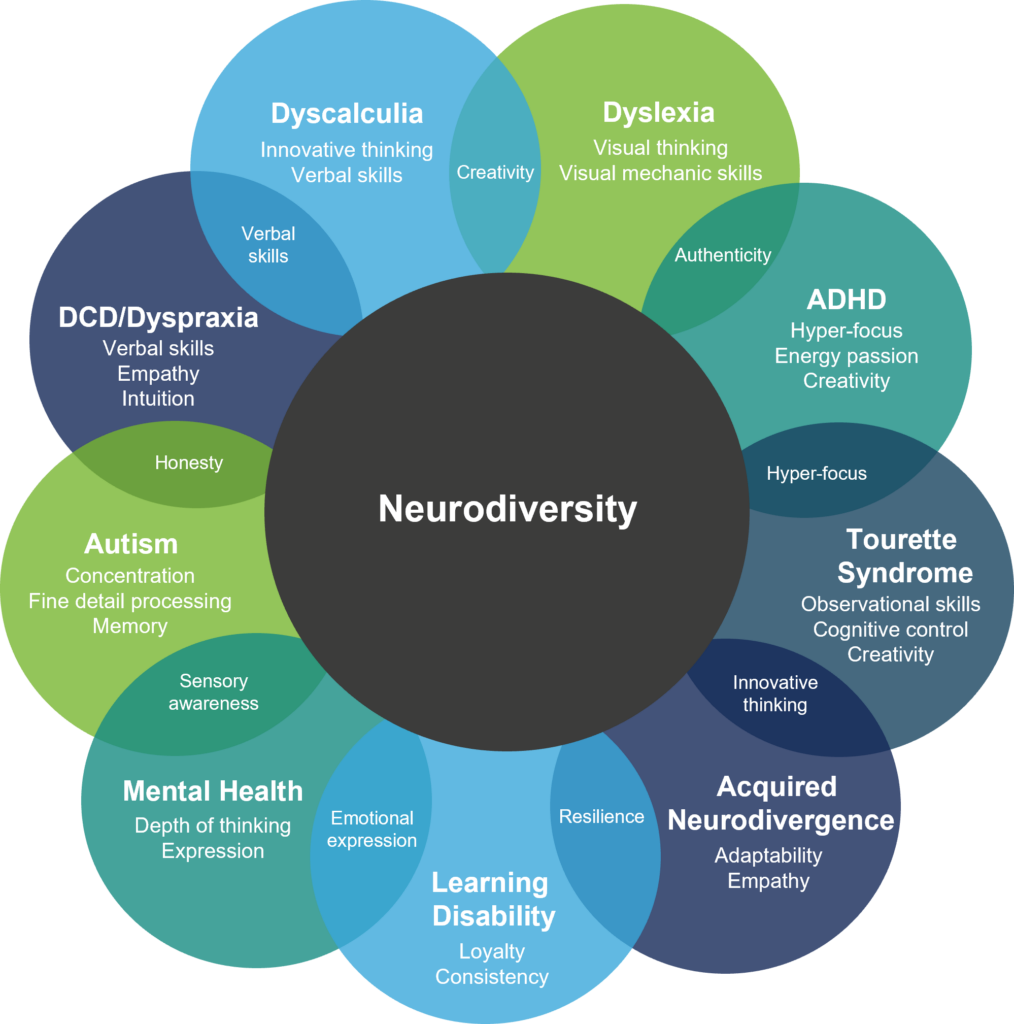“Neurodiversity” is a term that’s used to describe differences in the way people’s brains work. The idea is that there’s no “correct” way for the brain to work. Instead, there is a wide range of ways that people perceive and respond to the world, and these differences are to be embraced and encouraged.
The neurodiversity movement emerged during the 1990s, aimed at increasing the acceptance and inclusion of all people while embracing neurological differences. Judy Singer, an Australian sociologist, coined the term neurodiversity to promote equality and inclusion of “neurological minorities.” While it is primarily a social justice movement, neurodiversity research and education is increasingly important in how clinicians view and address certain disabilities and neurological conditions.
The spectrum of conditions under the neurodiversity umbrella includes autism, ADHD, dyslexia and Tourette’s Syndrome.

Federated Health Charities supports Neurodiversity
Autism Ontario is a participating charity in Federated Health Charities, receiving funds throughout the year to support the work done by the society to achieve fairness for people with autism spectrum disorders.

Autism spectrum disorder (ASD) is associated with differences in communication, learning, and behavior, though it can look different from person to person. People with ASD may have a wide range of strengths, abilities, needs, and challenges. For example, some autistic people can communicate verbally, have a normal or above average IQ, and live independently, while others may not. They may struggle with their own harmful behaviours that impact their safety and well-being so need to be supervised in a caring environment.
However, for some people with autism, suffering may result from barriers imposed by societal norms, causing social exclusion and inequity.
David Moloney is a member of the Autism Ontario Board.
“Discovering that I had Asperger Syndrome was a revelation. I finally knew why I was anti-social throughout my childhood, and why I have such difficulty with social situations and social cues. Some of my struggles included finding suitable employment, and there were some experts that genuinely worked with me and helped me, and to ensure that I would be able to function as part of a team. And I’m forever grateful for those experts and the invaluable advice, perspective, and service that they provided me.”
Ensuring a Place for Neurodiversity in the Workplace
To ensure that people with neurodiversity feel welcome in the workplace, it is important to understand and embrace neurodiversity and improve inclusivity for all people, including those who are neurodiverse.

How can Workplaces be Made more Neurodiverse Friendly?
Offer small adjustments to your workspace to accommodate sensory needs, communications style and workplace etiquette such as:
- Sound sensitivity: Offer a quiet space, communicate expected loud noises if possible (such as fire alarms), offer noise-cancelling headphones
- Tactility: Allow modifications to the usual workplace dress code
- Movement: Allow use of fidget toys, extra movement breaks, flexible seating
- Using a clear communication style by avoiding sarcasm, euphemisms, jargon and implied messages. Also provide concise verbal and written instructions for tasks and break down the tasks into small steps.
- Informing people about workplace and social etiquette. D don’t assume someone is deliberately breaking the rules or being rude.
- Trying to provide advance notice for changes in plans, timing, etc., and providing a reason for the change.
- Patience and understanding.
March is Brain Health Month and contains Neurodiversity Week (March 13 – 19. Take the time in March to lend support for autism, a neurodiversity, with a donation with Federated Health Charities.






